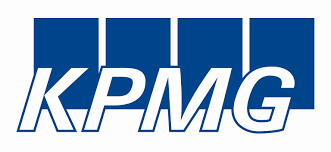health information technology (HIT)
See the following -
7 Thoughts on the Importance and Future of Blockchain in RCM
Blockchain is being put forward as a new means to potentially help solve interoperability challenges in healthcare. Blockchain technology is a permanent log of online transactions or exchanges. It emerged in 2009 as the foundation for trading the digital currency bitcoin. The entire log is duplicated across a network of computers. Users interactions on the network can add to the record of transactions...
- Login to post comments
81% Of Healthcare Organizations Have Been Compromised By Cyber-Attacks In Past 2 Years: KPMG Survey
 Eighty-one percent of health care executives say that their organizations have been compromised by at least one malware, botnet, or other cyber-attack during the past two years, and only half feel that they are adequately prepared in preventing attacks, according to the 2015 KPMG Healthcare Cybersecurity Survey.
Eighty-one percent of health care executives say that their organizations have been compromised by at least one malware, botnet, or other cyber-attack during the past two years, and only half feel that they are adequately prepared in preventing attacks, according to the 2015 KPMG Healthcare Cybersecurity Survey.
- Login to post comments
9 Ways Health IT – Beyond EHRs – Helps Patients
Even among very knowledgeable people, the concept of health information technology is often equated with its most familiar element, “electronic health records.” Adoption of electronic health records are a critical first step to realizing the transformational power of Health IT – but getting out of paper enables even greater HIT capabilities. Read More »
- Login to post comments
A 40-Year 'Conspiracy' at the VA
 Four decades ago, in 1977, a conspiracy began bubbling up from the basements of the vast network of hospitals belonging to the Veterans Administration. Across the country, software geeks and doctors were puzzling out how they could make medical care better with these new devices called personal computers. Working sometimes at night or in their spare time, they started to cobble together a system that helped doctors organize their prescriptions, their CAT scans and patient notes, and to share their experiences electronically to help improve care for veterans...
Four decades ago, in 1977, a conspiracy began bubbling up from the basements of the vast network of hospitals belonging to the Veterans Administration. Across the country, software geeks and doctors were puzzling out how they could make medical care better with these new devices called personal computers. Working sometimes at night or in their spare time, they started to cobble together a system that helped doctors organize their prescriptions, their CAT scans and patient notes, and to share their experiences electronically to help improve care for veterans...
- Login to post comments
A Chat with CommonWell’s Executive Director: Interoperability’s Next Steps, Data Blocking, and Epic
 It’s been a little over three years since the CommonWell Health Alliance, an industry trade group made up of many of the largest electronic health record (EHR) systems vendors and other health IT companies, formed at the Healthcare Information and Management Systems Society (HIMSS) annual conference with the goal to greatly enhance health data exchange. And, it’s been a little over a year since the Alliance tapped Jitin Asnaani as its founding executive director...
It’s been a little over three years since the CommonWell Health Alliance, an industry trade group made up of many of the largest electronic health record (EHR) systems vendors and other health IT companies, formed at the Healthcare Information and Management Systems Society (HIMSS) annual conference with the goal to greatly enhance health data exchange. And, it’s been a little over a year since the Alliance tapped Jitin Asnaani as its founding executive director...
- Login to post comments
A Dubious Diagnosis: Will New Yorkers Really Be Able To See Their Health History Online?
The 19.5 million residents of New York State will soon have access to heaps of their own health data — the results of every blood test, the details on every prescription — courtesy of a groundbreaking web portal that'll make obtaining medical records as easy as online banking. Read More »
- Login to post comments
A Library Of Meaningful 'Reuse'
A small health IT company and technology consultancy have launched what they call an “online ecosystem” of resources to help share digital health record and HIE interfaces, especially those developed with public funding. San Antonio-based Pronia Health and consultant Aegis.net are partnering to offer the Open Library of Health Information Exchange, or OLHIE, with the broad aim of accelerating connections through the “reuse of interfaces and other assets.” Read More »
- Login to post comments
A Tale Of Two Studies: What Are The Actual Costs Of An EHR?
Does anyone in their right mind believe that these are the best of times in healthcare or health IT? Scratch that. Does anyone besides Judy Faulkner and Neal Patterson believe these are the best of times? Read More »
- Login to post comments
A Time Out For Health IT?
A recent RAND(1) study has concluded that the implementation of health information technology (HIT) has neither effected a reduction in the cost of healthcare nor an improvement in the quality of healthcare. Read More »
- Login to post comments
A Treasure-Trove Of iOS Apps For Healthcare Professionals
Apple has opened up a library of great App Store resources for healthcare professionals, many of which are free. This article will show you how to find them. Read More »
- Login to post comments
A Troubling Strategy At Health IT Week
Health IT Week demonstrated a double barrel strategy to segregate patient information from provider information. Providers already have the power to set prices and health IT plays the central role. Read More »
- Login to post comments
A Welcome Extension, For Most
After months of physicians, hospitals and IT groups calling for more time to complete Meaningful Use, the federal government responded. Although not everyone is pleased. Read More »
- Login to post comments
AAFP Asks For Meaningful Use Stage 2 Delay
The American Academy of Family Physicians has appealed to CMS to delay the meaningful use Stage 2 timeline by one year. Read More »
- Login to post comments
AAFP Calls For A Less Burdensome ONC Interoperability Plan
The American Academy of Family Physicians (AAFP) is seeking to reduce regulatory burdens on providers in response to a request for commentary on the Federal Health IT Strategic Plan 2015–2020 recently published by the Office of the National Coordinator for Health Information Technology (ONC)...
- Login to post comments
ACA Fosters 'Fertile Time For Healthcare Investments'
The healthcare industry has been notoriously slow at identifying methods and tools it needs to reduce costs and improve quality noted a report by healthcare investment firm the Psilos Group, but health reform is producing promising opportunities for investors to fuel needed innovations. Read More »
- Login to post comments